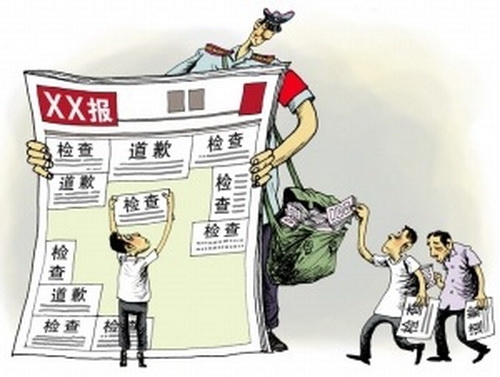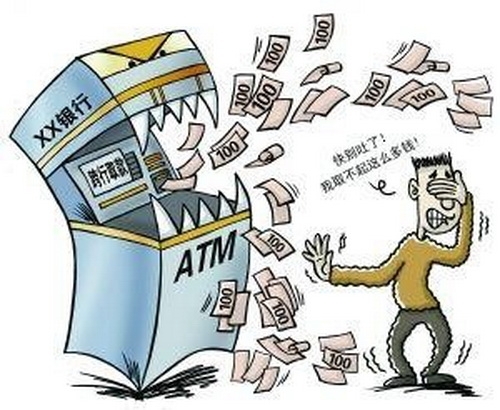September 14, 2012
Translated by Zhang Dian
Editors from the EO's Chinese website publish a daily collection of extracts from commentary pieces that have appeared in the mainland press over recent days. Every Friday the EO's English team translates a selection of these opinion pieces.
Diaoyu Island Dispute

Background
Via Economic Observer
On September 11, the Japanese government signed a contract with the Kurihara family, who the Japanese say are the private owners of the Diaoyu Islands. In response, the Chinese government sent two patrol ships to the disputed East China Sea islands in a show of anger. Rallies and protests also broke out in several Chinese cities.
Commentary:
The Japanese government has to know that China has chosen peaceful development as its strategy, but it's never been the case that we have to choose between defending our soverign territory and peaceful development. The era in which the Chinese people could be bullied has already passed and will never return. Japan should not forget the lessons it learned after ultimately being defeated in a war it began when it invaded China more than half a century ago. Based on our shared history, Japan must be well aware of the strong will of the Chinese people who love peace but will not be bullied.
People's Daily (人民日报)
Original article: [Chinese]
China stating its claim to territory is still not enough. China should frequently send ocean surveillance ships (海监船) and fishery patrol boats (渔政公务船) to maintain order in the area. The Ministry of Land and Resources, in the meantime, have to land on the island and build up some infrastructure for some scientific purpose. Only by doing these things can we have solid evidence for our possession of Diaoyu Island.
The Beijing News (新京报)
Original article: [Chinese]
Japan intend this purchase to "legally" occupy Diaoyu Island. The Chinese government however only warns the Japanese not to do this, this is far from enough what they actually do is far less than the big words they proclaim and it imposes no pressure on Japan.
Oriental Daily (东方日报), Hong Kong based Daily
Original article: [Chinese]
Letters of Self-criticism Published in Newspapers

Source: Yangzhou News
Background
Via Economic Observer
In the city of Guiyang, the provincial capital of Guizhou, people are being forced to write letters of self-criticism and then pay to have them published in the local paper for such minor offences as not wearing a seat belt.
Commentary:
Requiring individuals to publish self-criticism is not at all creative but sends a wrong signal to people. It threatens to ruin people's reputation and also forces them to do things they are unwilling to do. Basically, this kind of punishment reduces people's trust in local institutions. Local regulators should reconsider this policy.
Huaxi Metropolis Daily (华西都市报)
Original article: [Chinese]
That punishments are being decided by local authorities instead of the law is a sign that officials in Guiyang are abusing their power. People working in statistics, on toll roads and in human resources have all been subject to this kind of punishment. It is high time this practice of requiring them to write letters of self-criticism be stopped. However, authorities in Guiyang show no sign of wanting to correct their obvious mistakes, which is scarier than the self-criticism itself.
China Business View (华商报)
Original article: [Chinese]
A punishment like this is actually an illegal local policy, neither justified nor in keeping with the proper procedures. In essence, forcing people to publish a self-criticism is a suppression of their human rights and a distortion of morality.
China Youth Daily (中国青年报)
Original article: [Chinese]
ATMs Swallow Money

Source: Chinamilitary.cn
Background
Via Economic Observer
On Sept 7, a Mr. Ding was using an ATM in Nanjing to deposit money. During the automated process ten thousand yuan was not accounted for, the machine had swallowed it but it didn't appear on his receipt. Mr Ding immediately called the bank's hotline to report the problenm but was told that he'd have to wait two working days to get his money back. Subsequently, Mr. Ding used another telephone to call the bank's hotline again, this time he claimed that the ATM had spat out an extra three thousand yuan. On hearing this, the bank staff rushed to the scene and arrived in 5 minutes. The bank attempted to justify their actions by saying the money swallowed by ATMs is safe in the machine, so customers need not be in a rush to get their money back.
Commentary:
If an ATM misplaces a customers deposit it hurts the customer, which is not something the bank seems to care about but if an ATM starts spitting out notes, this will hurt the bank. Therefore, the bank takes action as soon as possible. It's quite ironic that banks seem to care more about their money than that of their customers.
Yangtze River Daily(长江日报)
Original article: [Chinese]
A profit-seeking institution will make money by providing services and these service should be their core business. The bank should stop trying to make excuses and try to do a better job at carrying out its core business.
Southern Metropolis Daily (南方都市报)
Original article: [Chinese]
To protect the rights of bank customers we should break the banking monopoly. Only when intense competition is imposed will banks realize how important their customers are when it comes to making profits.
Anzhao Metropolis Daily (燕赵都市报), a daily paper published by the Hebei Daily Newspaper Publishing Group
Original article: [Chinese]
5-year Renewal Procedure for Teaching Qualifications
Background
Via Economic Observer
There are reports that the Education Commissions in Beijing and Shanghai plan to introduce a new policy that will require teachers to renew their teaching qualifications every five years. Teachers will be required to sit an exam in order to renew their teaching license. If they fail the exam, teachers will no longer be able to teach.
Commentary:
It is a good thing to improve the education system by abolishing the system that doesn't require teachers renew their qualifications. The new system will encourage teachers to keep learning and maintain their enthusiasm for their vocation. To avoid any problems during the implementation of the policy, there is still a need for policy makers to listen to the public.
Huaxi Metropolis Daily (华西都市报)
Original article: [Chinese]
The problem with this policy lies in its feasibility. Who should take responsibility for evaluating teachers? Should it be officials in the Ministry of Education, the education experts, headmasters or parents and students? Obviously no matter who makes the judgement, there are possible problems. How can we make sure that the people charged with evaluating teachers are fair and impartial and don't accept bribes?
Legal Daily (法制日报)
Original article: [Chinese]
